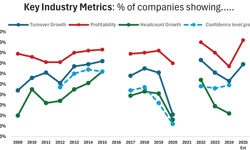
As reported by the National Union of Journalists: “John Ridding, CEO of Financial Times Ltd, took home a salary of £2.6m in 2017 when total profits in that year were £4m. This extraordinarily high sum overtakes that of the head of Pearson, the FT’s former owner before it was bought by Nikkei, and is a 25 per cent increase on his salary in 2016. After years of negligible pay rises and real-term pay cuts, squeezed resources and an assault on FT final salary pensions, the company’s decision to pay its chief executive 100 times the salary of a trainee journalist makes a mockery of any concept of fairness and breaks the bounds of corporate integrity.”
The morning before the chapel was due to meet to discuss the statement, Ridding sent a message to his employees saying he would return his pay increase, which was £510,00 before tax, with the company getting the after-tax balance of about £280,000.
He said: “I have decided to reinvest into the FT the increase awarded in 2017. The first call on these resources will be a women’s development fund to augment and accelerate our efforts to support the advancement of women into more senior roles at the FT and reduce the gender pay gap. This is a strategic priority for the FT, as you know, and something I feel strongly about. The balance of funds will be used to help meet the company’s overall financial objectives.” He said that, while the company’s performance had been strong, he recognised his pay increase had created concerns and was viewed as anomalous.
A motion from the FT chapel welcomed his statement, but said it did not address their concerns over the overall pay situation, with many staff having had their pay squeezed in order to pay for increases at the top of the organisation. It said the company should respond to the widespread anger among staff as a matter of urgency otherwise the chapel would take all the steps necessary, up to and including balloting for industrial action.
It said: "We believe the company should act urgently to improve trainee salaries and to award above-inflation pay increases to the many members of staff both inside and outside editorial who have had incomes squeezed while top executives have profited at our expense. We call on Mr Ridding to spell out the detail of his proposals – how much will be deployed to address the gender pay gap, in what manner exactly, and when? We also call on him to initiate a similar effort on diversity. We also call on him to clarify what he is being paid this year, and to forego his bonus this year and put it back into the pot for all employees’ salaries.
"We call on the board to reveal how much every director is paid, including expenses and pensions contributions, along with any incentive and bonus schemes set up for each of them, and to tie future pay rises for senior executives to the pay increases given to other staff. A good year for the FT should not mean that the rewards flow disproportionately to the top. We also call on the Board to publish a full and transparent set of global accounts.
"We believe the company should respond to the widespread anger among staff as a matter of urgency. If we do not receive a timely response to all of our demands, we instruct chapel reps to place this matter into dispute and take such steps as may be necessary, up to and including balloting for industrial action."
Laura Davison, national organiser, said: "The collective anger and determination of NUJ members and staff has put this issue centre stage. NUJ reps have been inundated by people decrying the outright unfairness of this pay deal. It’s clear there needs to be a fundamental rethink on the approach to pay at the top of the organisation including looking at unfair pay ratios, much greater transparency and the intrinsic issues of equality and diversity. While today’s change of stance is welcome much more detail is needed and the voices of the workforce must be meaningfully represented in the discussions which follow."
Steve Bird, Joint FoC, FT Group NUJ chapel, said: "John Ridding's obscenely high pay and 25 per cent pay rise have infuriated FT journalists at all levels. This has acted as a focus for growing discontent over a gender pay gap of 18 per cent and rising workload at the company. Today's statement rightly demands greater transparency over executive salaries and bonuses and for above inflation pay rises to be targeted at staff whose own incomes have lagged behind inflation."












